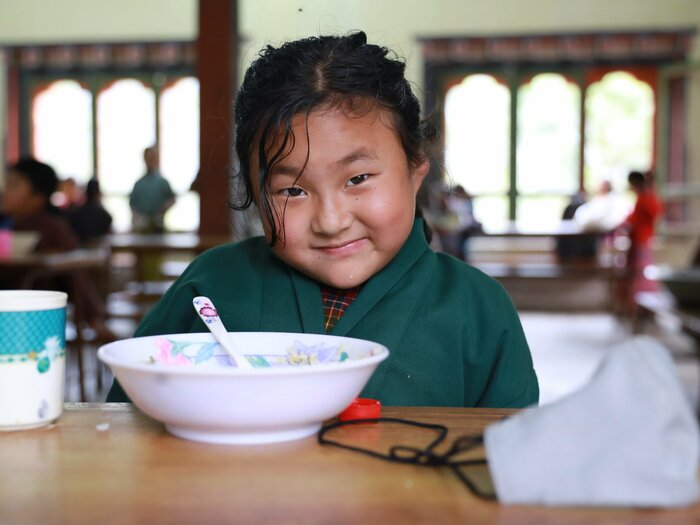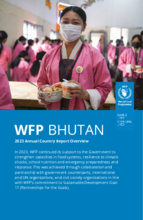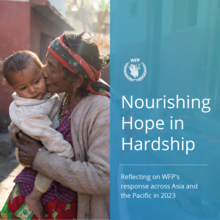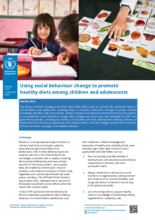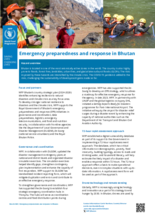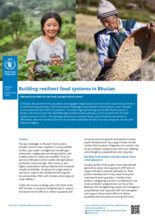Bhutan
- 42%
- of children under 5 are anaemic
- 70%
- of the reported disease burden in Bhutan is caused by non-communicable-diseases
- 650,118
- population
Guided by the concept of “gross national happiness”, the small Himalayan Kingdom of Bhutan has achieved rapid economic growth. Investments in health and education and a peaceful transition to a democratic constitutional monarchy, have resulted in a reduction in poverty from 23.2 percent to 8.2 percent in just a decade.
The Government is firmly committed to achieving the Sustainable Development Goals (SDGs) by 2030. However, the impact of climate change is expected to lead to more frequent and intense disasters that threaten to reverse Bhutan’s progress. A majority of people depend on the agricultural sector to survive, so protecting the country’s food and nutrition sector is an important step towards reaching Zero Hunger across the country.
What the World Food Programme is doing in Bhutan
-
Nutrition
-
WFP supports the national health system in the prevention and management of malnutrition. Projects aim to boost the availability, accessibility and consumption of fortified foods; support the scaling-up of the national school nutrition programme; and improve the health and diet of Bhutan’s children through school menu design, nutrition curriculum development, behaviour change communication campaigns and supply chains. WFP also works with the Ministry of Agriculture and Forests to increase production of nutritious crops, and to link farmers and their produce directly to schools.
-
Livelihoods and climate resilient food systems
-
WFP is supporting the Government as it strengthens livelihoods and climate resilient food systems. WFP’s assistance is implemented across the agriculture value chain, boosting demand for local food, building production capacity, and refining post-harvest management, marketing, knowledge management & cost efficiency and coordination & policy. A near real-time integrated national agriculture statistical, monitoring & reporting system is under development with the Government to improve agricultural statistics, market related data, and data on rural livelihoods including farmer income and job creation. The focus is on transforming resources into tangible development results through past lessons, sharpened focus and consolidation.
-
Disaster risk management
-
WFP is building national resilience to disasters and climate change as the UN lead in Bhutan on disaster risk management (DRM). WFP is assisting the Government across five areas: governance and coordination, data preparedness, logistics, emergency telecommunications and food security. This includes the development of a National Road Map for DRM, establishment of national capacity to enable disaster response within 72 hours; earthquake impact modelling, Glacial Lake Outburst Flood research; contingency planning; strengthening emergency telecommunications; emergency logistics preparedness and the establishment of humanitarian staging areas.
Bhutan news releases
Go to pagePartners and donors
Find out more about the state of food security in Bhutan
Visit the food security analysis pageOperations in Bhutan
Contacts
Office
UN House, Peling Lam, Kawajangsa
Thimphu
Bhutan

